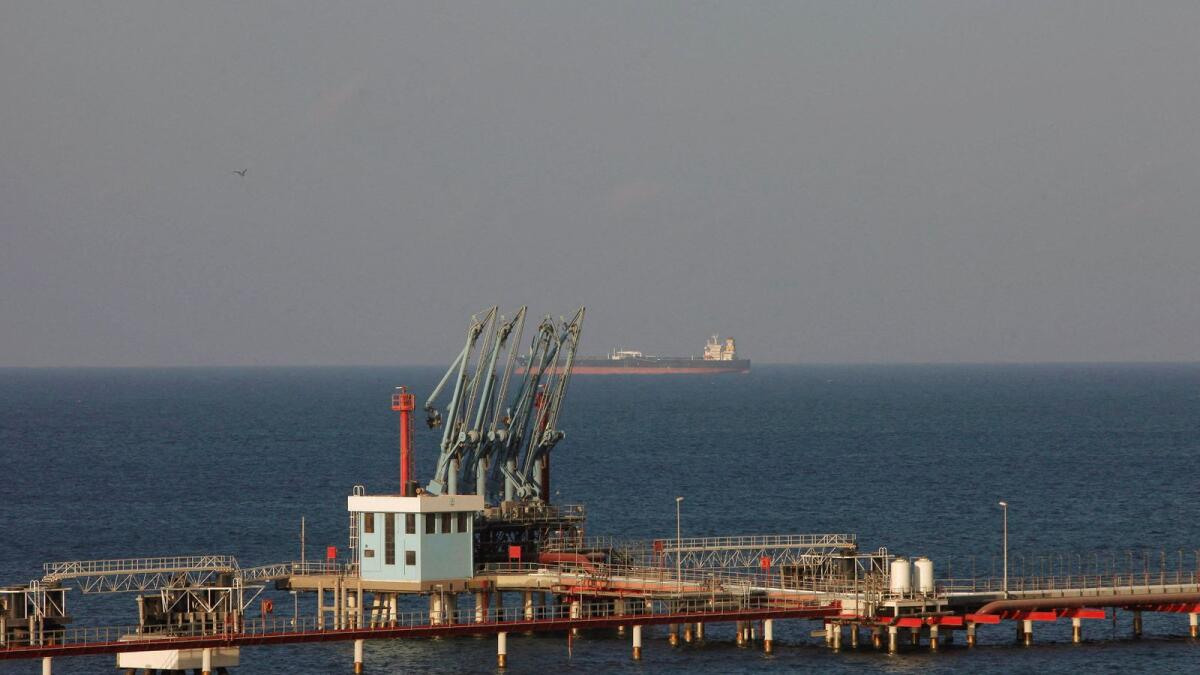Oil exports at major Libyan ports were halted on Monday, and production was curtailed across the country as a result of a standoff between rival political factions over control of the central bank and oil revenue. The crisis has caused Libya’s oil production to drop by more than half from typical levels as western factions seek to oust the Central Bank of Libya (CBL) Governor Sadiq al-Kabir and replace him with a rival board. In response, eastern factions have called for a shutdown of all oil production, threatening to end a four-year period of relative peace in the OPEC member nation. Exports remain halted at several major ports in Libya, including Es Sidra, Ras Lanouf, Hariga, Zueitina, Brega, and Sirte.
Arabian Gulf Oil Company (AGOCO), a subsidiary of the state-owned National Oil Corporation (NOC), has ordered an increase in production at its fields to cater to a power plant at the Hariga port. The production at AGOCO’s Sarir, Nafoura, and Messla fields has decreased significantly, from 290,000 barrels per day (bpd) on July 20 to 139,000 bpd on August 28, according to NOC. Despite efforts to boost production, the current output of AGOCO was not disclosed immediately. NOC has reported a drastic drop in total production from nearly 959,000 bpd on August 26 to just over 591,000 bpd by August 28, resulting in losses of over $120 million in just three days. In comparison, production was at about 1.28 million bpd on July 20, as stated by NOC.
The halt in major oil exports has severely impacted Libya’s oil industry, leading to a substantial decrease in production levels and revenue losses. The standoff between rival political factions has caused disruptions in essential operations and has raised concerns about the stability of the OPEC member nation. The closure of key ports like Es Sidra, Ras Lanouf, Hariga, Zueitina, Brega, and Sirte has further exacerbated the situation, affecting the country’s ability to export oil and generate revenue. The conflict over control of the central bank and oil revenue reflects deeper political tensions within Libya, further complicating efforts to resolve the crisis and resume normal oil production operations.
The decision by AGOCO to increase production at its fields to supply a power plant underscores the urgent need to address the energy demands within Libya amid the ongoing crisis. By boosting production to support local power generation, AGOCO aims to mitigate some of the adverse effects of the halt in oil exports and maintain essential services for the population. However, the decrease in production levels and the disruptions in oil exports have highlighted the vulnerability of Libya’s oil sector to political instability and internal conflicts. The standoff over control of the central bank and oil revenue has underscored the challenges facing the country’s efforts to sustain its oil production and economic stability.
The impact of the oil production halt and export disruptions on Libya’s economy and oil industry cannot be understated, as the country heavily relies on oil revenue to support its economy and government operations. The drastic drop in production levels and revenue losses due to the standoff between political factions has the potential to exacerbate existing economic challenges and deepen the country’s dependency on oil exports. The prolonged disruption in oil production and exports poses significant risks to Libya’s economic stability and the well-being of its population, highlighting the urgent need to address the underlying political tensions and conflicts to ensure the resumption of normal oil production operations and exports.
As the standoff between rival political factions continues and the halt in major oil exports persists, the need for a swift resolution to the crisis to restore stability to Libya’s oil industry and economy becomes increasingly pressing. The disruptions in oil production and exports have already had severe repercussions for the country, leading to revenue losses, decreased production levels, and concerns about the long-term sustainability of the oil sector. Addressing the underlying political tensions and conflicts that have fueled the standoff over control of the central bank and oil revenue is crucial to overcoming the current crisis and ensuring the resumption of normal oil production operations and exports for the benefit of the country and its people.











